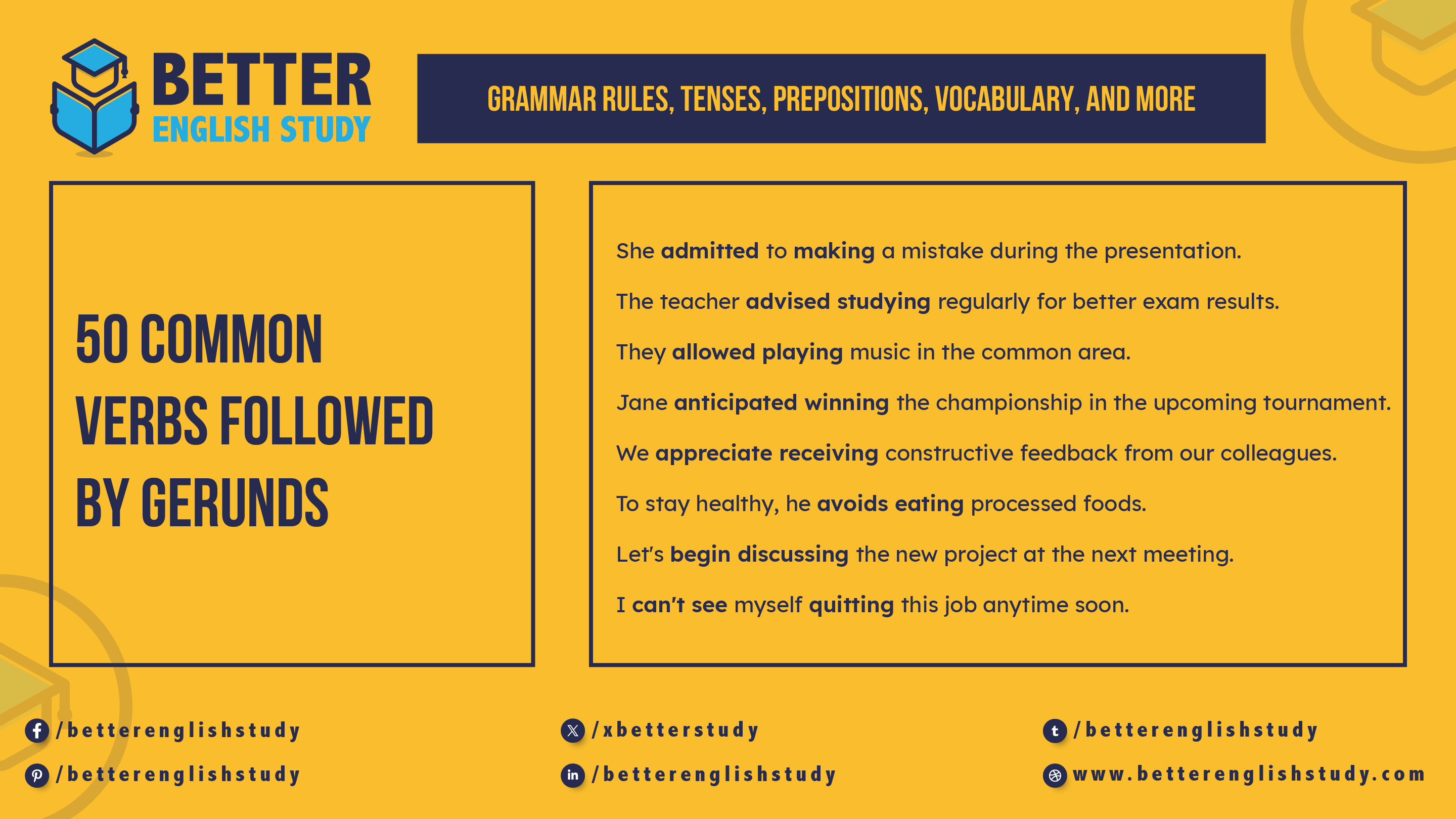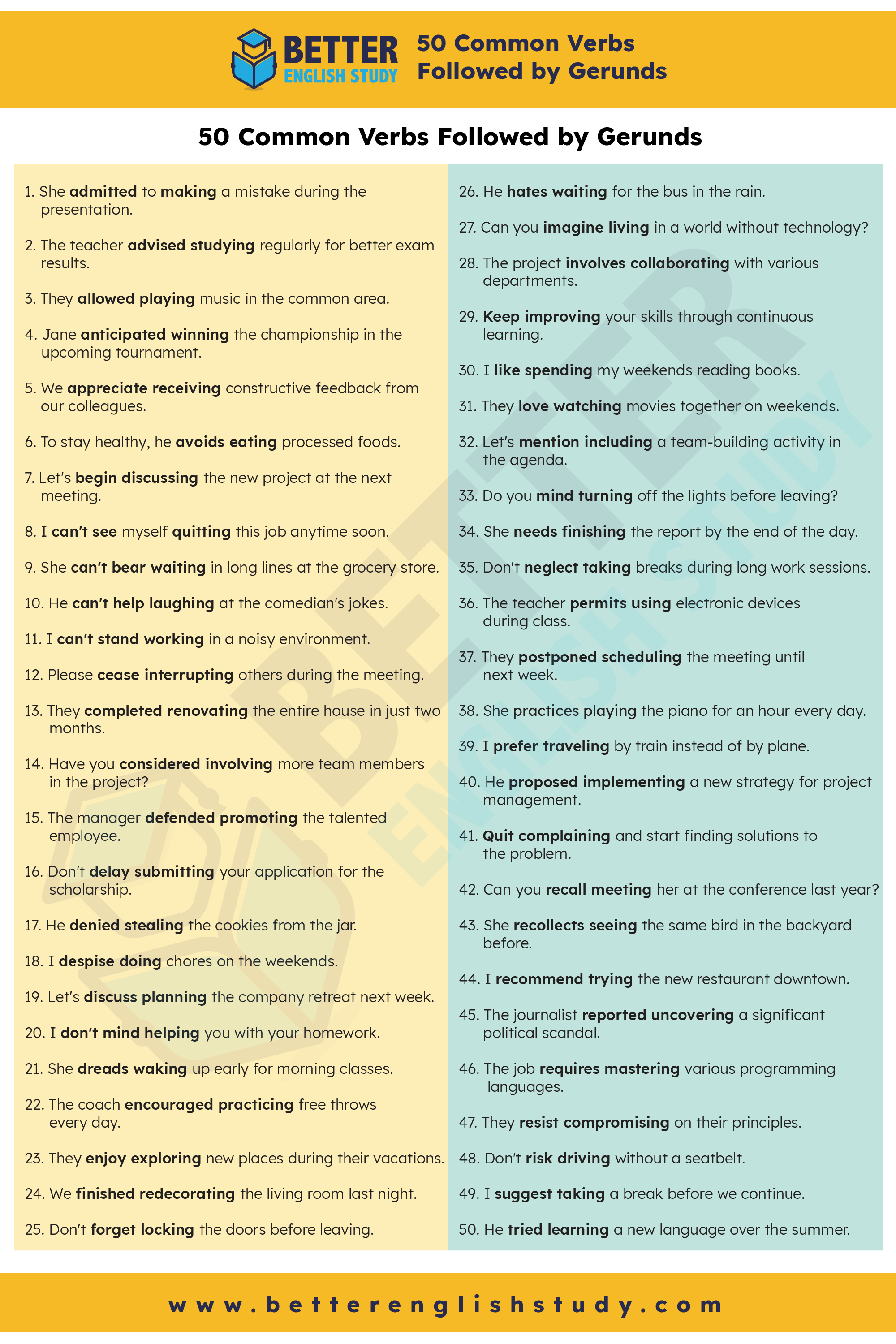
Consider these two sentences “She is good at dancing” and “After a long day at work, Sarah finds relaxation in gardening” have something intriguing in common—their ending verbs are not merely describing actions but functioning as gerunds.
A gerund, is a verb taking on the role of a noun, making it a versatile and essential component of English grammar.
In these sentences, “dancing” and “gardening” transition from describing actions to becoming the focal points of the sentence, acting as nouns. Gerunds, in their present participle form (root verb + “ing”), allow us to express actions more abstractly, attributing them to reasons, hobbies, or receivers of actions. The transformation of verbs into gerunds enhances the flexibility of language, enabling us to communicate with nuance and depth.
Consider the examples: “The children spent the afternoon playing in the park” and “Emily apologized for forgetting about the meeting.” In these instances, the gerunds “playing” and “forgetting” not only convey actions but also serve as integral components of the sentences, functioning as nouns that shape the overall meaning and emphasis.
This article aims to guide English learners through 50 common verbs that pair seamlessly with gerunds.
50 Common Verbs (with example sentences) that Followed by Gerunds
- Admit: She admitted to making a mistake during the presentation.
- Advise: The teacher advised studying regularly for better exam results.
- Allow: They allowed playing music in the common area.
- Anticipate: Jane anticipated winning the championship in the upcoming tournament.
- Appreciate: We appreciate receiving constructive feedback from our colleagues.
- Avoid: To stay healthy, he avoids eating processed foods.
- Begin: Let’s begin discussing the new project at the next meeting.
- Can’t see: I can’t see myself quitting this job anytime soon.
- Can’t bear: She can’t bear waiting in long lines at the grocery store.
- Can’t help: He can’t help laughing at the comedian’s jokes.
- Can’t stand: I can’t stand working in a noisy environment.
- Cease: Please cease interrupting others during the meeting.
- Complete: They completed renovating the entire house in just two months.
- Consider: Have you considered involving more team members in the project?
- Defend: The manager defended promoting the talented employee.
- Delay: Don’t delay submitting your application for the scholarship.
- Deny: He denied stealing the cookies from the jar.
- Despise: I despise doing chores on the weekends.
- Discuss: Let’s discuss planning the company retreat next week.
- Don’t mind: I don’t mind helping you with your homework.
- Dread: She dreads waking up early for morning classes.
- Encourage: The coach encouraged practicing free throws every day.
- Enjoy: They enjoy exploring new places during their vacations.
- Finish: We finished redecorating the living room last night.
- Forget: Don’t forget locking the doors before leaving.
- Hate: He hates waiting for the bus in the rain.
- Imagine: Can you imagine living in a world without technology?
- Involve: The project involves collaborating with various departments.
- Keep: Keep improving your skills through continuous learning.
- Like: I like spending my weekends reading books.
- Love: They love watching movies together on weekends.
- Mention: Let’s mention including a team-building activity in the agenda.
- Mind: Do you mind turning off the lights before leaving?
- Need: She needs finishing the report by the end of the day.
- Neglect: Don’t neglect taking breaks during long work sessions.
- Permit: The teacher permits using electronic devices during class.
- Postpone: They postponed scheduling the meeting until next week.
- Practice: She practices playing the piano for an hour every day.
- Prefer: I prefer traveling by train instead of by plane.
- Propose: He proposed implementing a new strategy for project management.
- Quit: Quit complaining and start finding solutions to the problem.
- Recall: Can you recall meeting her at the conference last year?
- Recollect: She recollects seeing the same bird in the backyard before.
- Recommend: I recommend trying the new restaurant downtown.
- Report: The journalist reported uncovering a significant political scandal.
- Require: The job requires mastering various programming languages.
- Resist: They resist compromising on their principles.
- Risk: Don’t risk driving without a seatbelt.
- Suggest: I suggest taking a break before we continue.
- Try: He tried learning a new language over the summer.

Understanding these verbs and their association with gerunds will enhance your ability to construct grammatically sound and contextually relevant sentences. Practice incorporating these combinations into your conversations; soon, you’ll find yourself expressing ideas fluently and precisely. Happy learning!
